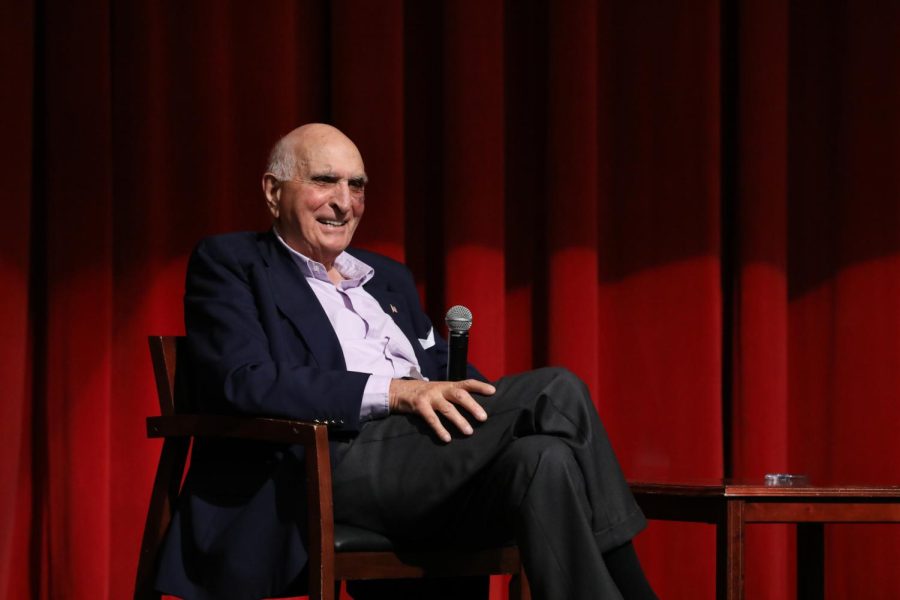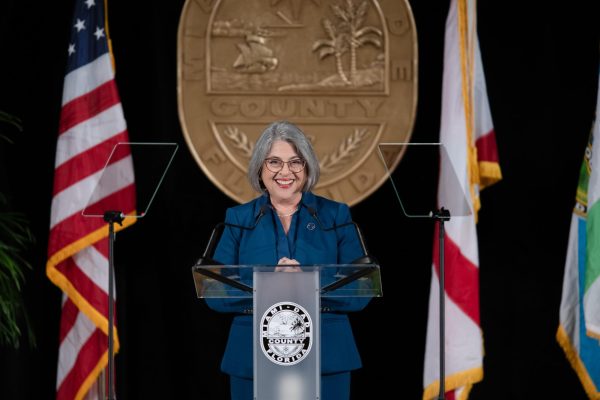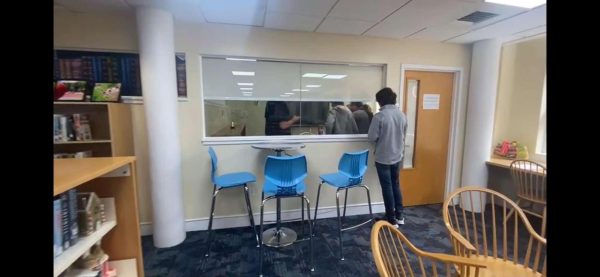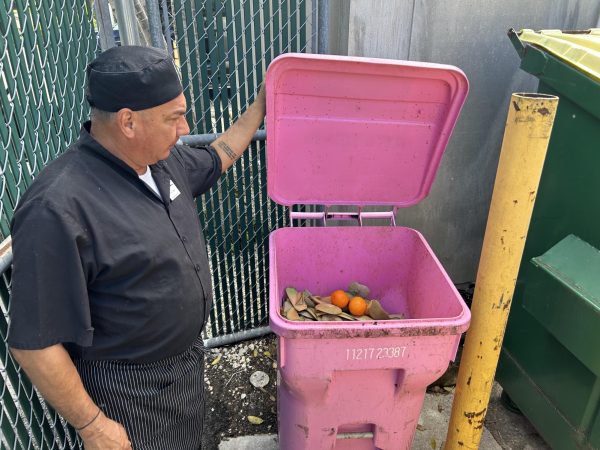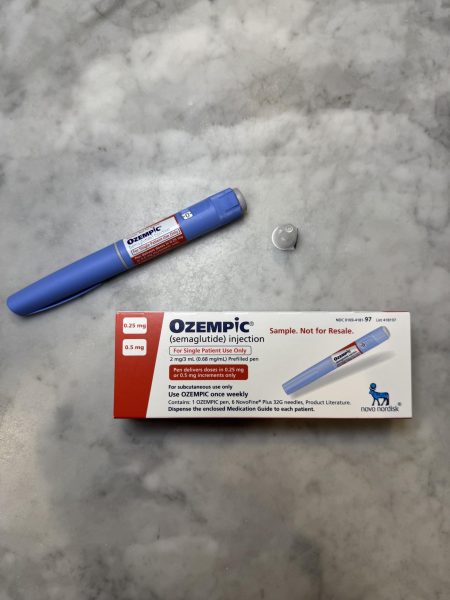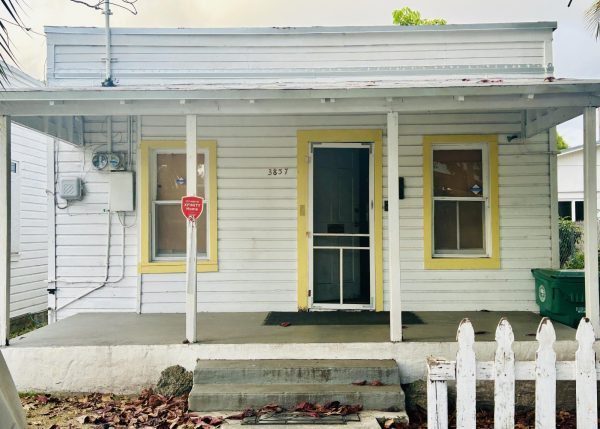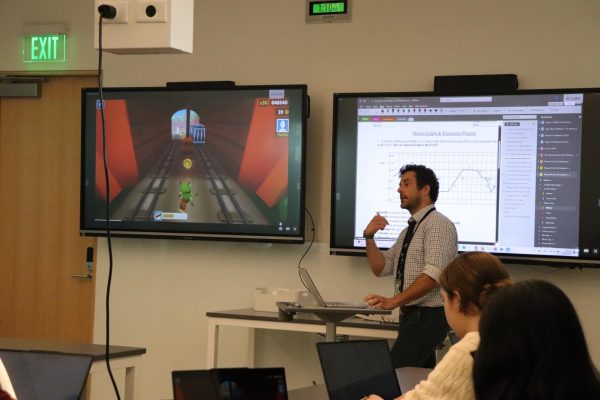Crypto, Capitalism and the Common Good
The Holzman Center for Applied Ethics sparks debate in the RE community
Suzanne Kores / RE Communications
One event featured Home Depot co-founder and philanthropist Ken Langone
On January 12, hundreds of RE students gathered in the Lewis Family Auditorium to hear from Home Depot co-founder Ken Langone about Business Ethics. The event was the second in a speaker series introduced by the newly established Holzman Center for Applied Ethics. In December, Miami Mayor Francis Suarez visited RE and participated in the first discussion, centered on ethics in government; the Honorable William Thomas, an Eleventh Circuit Judge, spoke on judicial ethics on March 1.
In an assembly in December, the Center was introduced to students by Associate Head of School John King, the Center’s director. In the assembly and on the Center’s website, Dr. King explained that the idea for the Center came from Steve Holzman, an RE parent and managing partner at a private equity firm, last spring. Mr. Holzman was concerned that “without a foundation in ethics and critical thinking, students of this era are ill-equipped to face growing challenges in evaluating right from wrong.” Mr. Holzman believed that “corner cutting, and cheating have increased across the spectrum… and the practice of ethics must become a way of life.”
The Center’s website identifies its primary goal as providing “specific programming – workshops, symposia, speakers, research opportunities and curricular updates – to ensure that Ransom Everglades students enter the world understanding the importance of ethical behavior.”
Each month, the Center publishes a “one-pager” with information on the month’s ethical theme (such as government ethics) and case studies to use at the lunchtime case study discussion it hosts on “real world ethical dilemmas.” Afterward, the Center will invite an important figure, such as Mayor Suarez or Mr. Langone, to speak to RE in a Q&A format with Dr. King about their experiences with ethical dilemmas. Dr. King explained that when choosing speakers, the Center has prioritized “having a diversity of speakers, identities, and the fields of work that they represent.”
The Center’s first event was on December 5, focusing on government ethics. The City of Miami’s 43rd Mayor, Francis X. Suarez, participated in a panel discussion with Dr. King and Mrs. Townsend.
The panel focused on topics that came up at the lunchtime case study two weeks prior, including ethics in political lobbying, voting, and the common good. There, Suarez explained that he hears about and deals with ethical dilemmas “almost every day,” and continued, “It seems like the more responsibility that you have…, the more dilemmas you get into.” Suarez mentioned that, on his way over to speak, he had to deal with a situation involving bad press from a blogger who had “put something up about him.”
As the conversation shifted to ethical dilemmas during the pandemic, Suarez described the “unprecedented challenges for government in America.” Frequently, he felt that he had to choose between “the best of two tough decisions,” with consequences as severe as shutting down the economy for the sake of safety. Ultimately, Suarez said he had to “make a decision based on what’s right.”
One of the most challenging aspects of the city’s pandemic response was balancing opposing views from epidemiologists and economists. He claimed that many scientists were being too “conservative,” and it was necessary to “challenge the thinking.” He pointed to the ‘How Can I Help?’ campaign—his campaign to bring tech-industry companies and jobs to Miami, which started with a viral tweet—as evidence of progress in the connection between the government and people. Ultimately, Suarez concluded that “you’re never going to convince 100% of the people; there’s always going to be haters and doubters.”
RE students found him to be a compelling speaker. “I thought it was interesting to be able to listen to the mayor and hear his perspective. I especially liked his larger message of being ethical on the small things leads us to be ethical on the big things,” Andre Joseph ’22 explained. Leticia Crosby ’23 said that “Suarez was a very good politician,” especially when he was answering specific questions.
A month later, Langone, the Home Depot co-founder and billionaire, spoke to the community on business ethics. There he emphasized that throughout his business career, “if there was even the slightest chance of something unethical happening, I wouldn’t do it… it’s always best to err on the side of being totally ethical.”
Langone expressed his profound belief that a company should never “sell the customer what they don’t need.” He said that he always thought back to his father, who once told him to ask himself, “Would you like what you’re doing to be on the front page of the newspaper tomorrow?”
When asked about how he viewed ethics’ role in capitalism halfway through, Langone dismissed the idea that they were mutually exclusive. In his opinion, capitalism is “one of the greatest things on earth,” and he used his own philanthropic record—among other causes, Mr. Langone pledged $100 million to help make the NYU Medical School tuition-free—as an example to disprove any “socialists in the audience.”
After the panel’s conclusion, Luca Campiani ’22 asked him about the need for philanthropy if services like education and healthcare were free in the first place, as they are in countries in Europe. In his answer, Mr. Langone continued to reinforce the idea of American exceptionalism and the benefits of private institutions.
When I caught up with him afterwards, Campiani had sharp criticisms of Mr. Langone’s rhetoric. “[Mr. Langone] was talking about how you need to respect workers, while at the same time Home Depot discourages their workers from unionizing,” he said. “He also loves rags to riches stories, and the ‘American Dream’ … but the truth is that for every one person that makes it, there are countless people who don’t, and it skews people’s views of what is possible if we only hear one side of it.”
“Ransom Everglades has a large number of students who are not American,” Campiani continued, “and it makes us feel alienated when speakers continually mention the ‘greatness’ of America.”
Other RE students and faculty expressed differing opinions about Mr. Langone’s perspective. Ariana Kaye ’24 said that “Mr. Langone was very passionate about his beliefs,” while Collin Goff ’24 said he “[agreed] with Mr. Langone’s stances on capitalism and how it’s beneficial,” though he did not like how Mr. Langone handled Campiani’s question. History and Social Sciences teacher Dr. Brandon King said he thought that “the presentation ended up being in contrast with the pluralistic culture that we are trying to cultivate and maintain here at Ransom Everglades.”
David Dubovy ’22 thought Mr. Langone’s presentation was provocative in a valuable way, though he hoped the next one would be less politically contentious. “Bringing in speakers with different opinions is a good thing, especially to spark conversations like the ones that happened with this one. Next time, maybe, it can be more civil,” he said.
Dr. King said that the Holzman Center plans to continue its monthly activities throughout this semester and into next year. One upcoming speaker this semester is Marc Trestman, a former NFL head coach. Dr. King even mentioned a potential opportunity for a High School Ethics Bowl in the future.
After reflecting on the results of the first two speakers, Dr. King was pleased. He emphasized that a success for the Center would be “more conversations about ethics, and an increased sense that people in the community are generally making ethical decisions.”
Ian Fox '24, a senior at Ransom Everglades School, is the executive news editor for the Catalyst. He's involved in Speech and Debate, Model UN, and TEDx...


